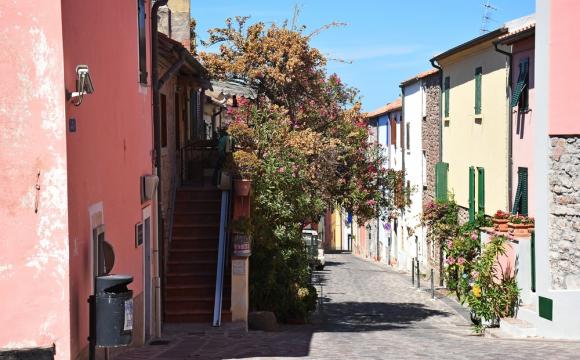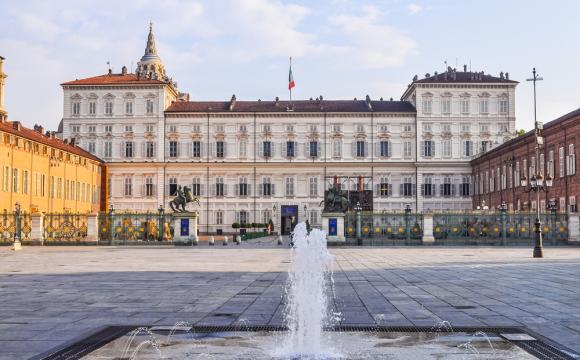(ANSA) - Bank of Italy Governor Antonio Fazio was under renewed pressure to resign on Wednesday after his close friend and former bank chief Gianpiero Fiorani was arrested for suspected embezzlement. Fiorani, the ex-chief executive of Banca Popolare Italiana (BPI), was jailed Tuesday night accused of criminal conspiracy to embezzle.
Arrest warrants were issued for four of his associates while some 80 others were placed under investigation.
Several top-level politicians were reported to be involved in the probe on suspicion of having accepted illicit funds but their names have not been released. Fiorani is already under investigation for price-fixing, insider trading and hindering the work of market regulators while he tried to engineer a takeover of another Italian lender, Banca Antonveneta.
Fazio's reputation has been tarnished by his role in the failed takeover operation. Published transcripts of wiretaps ordered by magistrates appear to show that Fazio and his wife worked behind the scenes to help BPI and Fiorani against Dutch rival ABN Amro. ABN Amro eventually prevailed in its bid after Italian judicial probes blocked the BPI operation.
Fazio, 69, is now under judicial investigation in Italy for abuse of office in connection with the case.
His position has not been helped by new allegations that he and his family regularly received expensive, luxury gifts from Fiorani including watches, jewellery and silverware. Fazio, who has an open-ended mandate, has resisted all pressure to resign, insisting that he did nothing wrong and has not broken any laws.
Italian daily Corriere della Sera quoted Fazio as saying after Fiorani's arrest: "My conscience is clear. I have always applied the law correctly. If Fiorani has done something illegal, we have nothing to do with it."
But opposition politicians renewed their calls for Fazio to step down. Referring to the political corruption scandals of the
1990s known as Bribesville, prosecutor-turned-politician Antonio Di Pietro said that "Fiorani's arrest takes us back to a past which we had hoped to bury forever."
Luca Cordero di Montezemolo, leader of the powerful industrial employers' federation Confindustria, said that "never have we seen the overlap between business and politics grow as it has done over the past year, leading to a general level of ethics which is unacceptable."
Arrests and searches, suspects embezzled 100 millions euros
Three other people were arrested together with Fiorani: BPI's former chief financial officer, Gianfranco Boni; Silvano Spinelli, an ex-BPI executive and Fiorani's one-time right-hand man; and Fabio Massimo Conti, an Italo-Swiss BPI consultant and manager of an offshore investment fund.
An arrest warrant was also issued for Swiss national Paolo Marmont, the joint manager of the fund. Marmont's whereabouts are not currently known. Former Italian president Francesco Cossiga demanded to know if there was any truth to reports that investigating prosecutors had also asked for Fazio's arrest but that their request was turned down by the courts.
On Wednesday, the investigation continued with searches of the homes and offices of 15 people, including BPI Chairman Giovanni Benevento and Vice-Chairman Desiderio Zoncada. Six other suspects close to Fiorani and BPI were accused
of aiding the criminal activities at the bank but not arrested.
Searches were also carried out in offices and banking premises in Switzerland.
Fiorani and his associates are suspected of embezzling at least 100 million euros.
They are accused of accumulating "massive personal fortunes" through insider trading, market rigging and mounting irregular takeover operations and by skimming off profits - reportedly up to 60% - BPI made on behalf of its so-called "preferential"
clients.
They are believed to have stolen from ordinary BPI customers to make up for bourse losses, fraudulently debiting small sums from their accounts or inventing bank charges.
Prosecutors believe they also dipped into the accounts of clients who had died and used such accounts and deposit ones to temporarily "park" profits from their illegal activities.
The Milan magistrate in charge of the probe, Clementina Forleo, said in the arrest warrant documents that BPI - which recently changed its name from Banca Popolare di Lodi - had been for years the "epicentre of major illegal business activities with obvious serious repercussions for the national banking and financial system."
She said Fiorani had "set up, promoted, organised and led" a criminal organisation. She said Fiorani's accomplices included "institutional" figures who had "for years remained inert despite numerous and detailed complaints from consumer associations and private citizens."
Forleo said that Bank of Italy officials tasked with inspecting BPI and its financial solidity after it launched its bid for Antonveneta had testified to finding "a series of grave anomalies... affirming that they had never seen a bank in such a state."
Fazio has been quizzed by prosecutors about his July 11 approval of BPI's bid for Antonveneta.
Two top Bank of Italy inspectors tasked with vetting BPI's bid decided it could not be approved because of doubts over the bank's capital and the alleged inadequacy of some of the documentation provided.
But Fazio and Bank of Italy Chief Inspector Francesco Frasca, one of the governor's closest aides, subsequently asked three outside consultants for their opinion on the bid. The three university professors gave a favourable assessment. Prosecutors suspect their positive report was then pasted onto a computer file containing the inspectors' negative assessment.
According to wiretap evidence, Fazio called Fiorani late at night to inform him of the Bank of Italy's approval of the bid before financial markets had been informed. Fiorani responded by telling Fazio - whom he addressed by the nickname 'Tonino' - that he was "moved". "I've got goosebumps... I'd kiss you on the forehead," Fiorani was taped saying.
Fazio accused of bias agains foreign banks
Both Dutch bank ABN Amro and Spain's No.2 bank, Banco Bilbao Vizcaya Argentaria (BBVA), have accused Fazio of unfairly and possibly illegally favouring Italian banks over foreign ones.
BBVA says the Bank of Italy blocked its bid for Italy's Banca Nazionale Del Lavoro (BNL).
BBVA lost out to the small Italian insurer Unipol but is now challenging the takeover operation in court. Judicial probes also threaten to derail Unipol's operation, which is still awaiting a definitive green light from the Bank of Italy.
Unipol Chairman Giovanni Consorte, a close friend of Fiorani, is now under investigation for suspected market rigging linked to his involvement in BPI's Antonveneta bid. On Tuesday, the European Commission approved the start of legal action against Italy over its handling of takeover bids by foreign banks.
In a so-called 'letter of formal notice', the EC asked the Italian government to explain its regulatory framework for cross-border banking takeovers. It criticises "judicial uncertainties" in Italy's regulatory system, arguing that these discourage foreign
investors and could infringe EU rules on the free movement of capital and the freedom for businesses to operate in other
member states.
Italy now has two months to respond. If its arguments fail to convince the EC, Italy risks being hauled before the European Court of Justice.



















